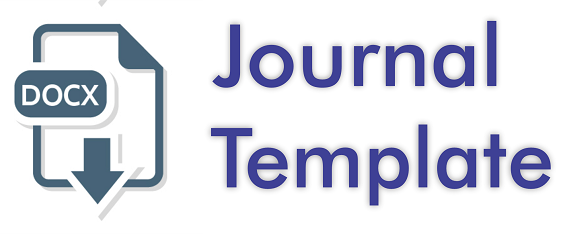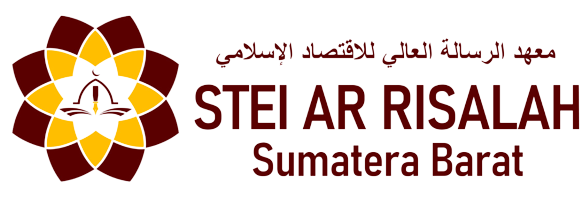Waqf Management Strategy In Accelerating Digitalisation And Islamic Financial Literacy For UMKM Under Micro Waqf Bank's Guidance
Keywords:
Strategic Management, Waqf, Acceleration, Digitalisation, Strategic Management, Waqf, Acceleration, Digitalisation, MSMEsAbstract
This study aims to analyze waqf strategy management in an effort to accelerate digitalization and Islamic financial literacy for micro waqf bank-assisted MSMEs. This research is a descriptive study using a qualitative approach. Data collection techniques are observation, interview, and documentary study. Data collection was carried out using interviews and observations to LKMS-BWM Barokah Pondok Pesantren Al-Masthuriyah and assisted MSMEs as BWM customers and literature studies. This research was analyzed using the SWOT method. The results showed that the development strategy for accelerating digitalization and Islamic financial literacy for MSMEs assisted by the Micro Waqf Bank in quadrant 1 is an aggressive strategy or S-O (Strengh-Opportunity) strategy, meaning that BWM can use existing strengths to take advantage of opportunities. This strategy is positive, meaning that basically, the development of BWM is good and can be developed further by utilizing existing opportunities. BWM can optimize programs registered and supervised by the Financial Services Authority, government-supported programs, implementation in accordance with Sharia principles/SOPs that have been established, cooperation with various parties, implementation in accordance with Sharia principles/SOPs that have been established, and catalysts for bankable MSME customers. I am also able to maximize current financing opportunities with joint responsibility for the use of developing technology with the BWM mobile application. Business coaching and mentoring are always presented to customers.
Downloads
References
Amboningtyas, D., Taunay, E. G. P., & Rusmawati, Y. (2021). Kondisi UMKM di Kota Semarang di masa pandemi Covid-19 pada pertumbuhan ekonomi. Prosiding Seminar Nasional Penelitian dan Pengabdian 2021, 526–537.
Apriliawan, F. B. A., Ridlwan, A. A., & Haryanti, P. (2021). Peran Bank Wakaf Mikro Dalam Meningkatkan Kesejahteraan Masyarakat ( Studi Kasus BWM Tebuireng Mitra Sejahtera ). JIES: Journal of Islamic Economics Studies, 2(1), 41–55.
Arifin, S. V. (2024). OPTIMALISASI KONSEP RESOURCE-BASED VIEW DALAM MEMPERTAHANKAN KEUNGGULAN KOMPETITIF PERUSAHAAN: STUDI PADA PERUSAHAAN MANUFAKTUR DI INDONESIA. WANARGI: Jurnal Manajemen Dan Akuntansi, 1(4), 356-366.
Badan Pusat Statistik. (2020). Penghitungan Analisis Kemiskinan Makro Indonesia tahun 2020. Badan Pusat Statistik.
Cahyani, S., Zuhirsyan, M., & Marpaung, M. (2021). Peran Bank Wakaf Mikro Dalam Meningkatkan Ekonomi Produktif Pelaku Ukm Sekitar Pesantren Mawaridus Salam. Jurnal Budgeting Akuntansi (Jba), 2(1), 127–134.
Elliyana, E., Paerah, A., & ... (2020). Kredit Usaha Rakyat Bank Rakyat Indonesia Dan Peningkatan Pendapatan UMKM. Jurnal Administrasi …, 8(2), 153–162. http://www.ejournal-binainsani.ac.id/index.php/JAK/article/view/1449
Faishol, M., & Rahman, H. (2021). Peran Pembiayaan Akad Qardhul Hasan Terhadap Peningkatan Pendapatan Nasabah Bank Wakaf Mikro Alpen Barokah Mandiri. Investasi:Jurnal Ekonomi dan Bisnis, 1(2), 49–57. https://journal.actual-insight.com/index.php/investasi/article/view/192%0A
Karjuni, A., & Mulasih, S. (2021). Strategi Pemasaran Syariah dalam Upaya Menarik Minat Nasabah Pada Bank Wakaf Mikro Buntet Pesantren Cirebon Tahun 2020. Ecobankers : Journal of Economy Banking, 2(1), 49–58.
Nur, M. A., Muharrami, R. S., & Arifin, M. R. (2019). Peranan Bank Wakaf Mikro dalam Pemberdayaan Usaha Kecil pada Lingkungan Pesantren. Journal of Finance and Islamic Banking, 2(1), 25. https://doi.org/10.22515/jfib.v2i1.1806
OJK. (2021). Statistik Perbankan Syariah. https://www.ojk.go.id/id/kanal/syariah/data-dan-statistik/statistik-perbankan-syariah/Documents/Pages/Statistik-Perbankan-Syariah---Juni-
/SPS Juni 2021.pdf
Pramono, N. H., & Wahyuni, A. N. (2021). Strategi Inovasi dan Kolaborasi Bank Wakaf Mikro Syariah dan Umkm Indonesia di Era Digital. Jurnal Ilmiah Ekonomi Islam, 7(1), 183. https://doi.org/10.29040/jiei.v7i1.1749
Rahman, M., & Widayanti, D. (2021). Pengaruh Pembiayaan Bank Wakaf Mikro Terhadap Peningkatan Kesejahteraan Ekonomi Nasabah ( Studi Kasus Bank Wakaf Mikro Maslahah Syubbanul Wathon Magelang ). Jurnal Nuansa Akademik: Jurnal Pembangunan Masyarakat, 6(2), 139–154.
Sapudin, A., Najib, M., & Djohar, S. (2017). Strategi Pengembangan Lembaga Keuangan Mikro Syariah ( Studi Kasus pada BMT Tawfin Jakarta) Development Strategy of Islamic Microfinance Institusion ( Case Study at BMT Tawfin Jakarta ) Sapudin A , Najib M , Djohar S Pengembangan Lembaga Mikro Syariah 1. Jurnal Al-Muzara’ah, 5(1), 21–36.
Sedjati, Retina Sri. (2015). Manajemen Strategis. Yogyakarta: Deepublish.
Yam, Jim Hoy. (2020). Manajemen Startegi Konsep & Implementasi. Makasar: Nas Media Pustaka.
Downloads
Published
Issue
Section
License
Copyright (c) 2024 RISALAH IQTISADIYAH: Journal of Sharia Economics

This work is licensed under a Creative Commons Attribution 4.0 International License.
License
The non-commercial use of the article will be governed by the Creative Commons Attribution license as currently displayed on http://creativecommons.org/licenses/by/4.0/. This licence allows the user to distribute, remix, tweak, and build upon the licensed work, including for commercial purposes, as long as the original author is credited.
Author’s Warranties
The author warrants that the article is original, written by stated author/s, has not been published before, contains no unlawful statements, does not infringe the rights of others, is subject to copyright that is vested exclusively in the author and free of any third party rights, and that any necessary written permissions to quote from other sources have been obtained by the author/s.
User Rights
Under the Creative Commons Attribution license, the author(s) and users are free to share (copy, distribute and transmit the contribution).
Rights of Authors
Authors retain the following rights:
- copyright, and other proprietary rights relating to the article, such as patent rights,
- the right to use the substance of the article in future own works, including lectures and books,
- the right to reproduce the article for own purposes, provided the copies are not offered for sale,
- the right to self-archive the article.
Co-Authorship
If the article was prepared jointly with other authors, the signatory of this form warrants that he/she has been authorized by all co-authors to sign this agreement on their behalf, and agrees to inform his/her co-authors of the terms of this agreement.
Termination
This agreement can be terminated by the author or RISALAH IQTISADIYAH: JOURNAL OF SHARIA ECONOMICS upon two months’ notice where the other party has materially breached this agreement and failed to remedy such breach within a month of being given the terminating party’s notice requesting such breach to be remedied. No breach or violation of this agreement will cause this agreement or any license granted in it to terminate automatically or affect the definition of RISALAH IQTISADIYAH: JOURNAL OF SHARIA ECONOMICS.
Royalties
This agreement entitles the author to no royalties or other fees. To such extent as legally permissible, the author waives his or her right to collect royalties relative to the article in respect of any use of the article by RISALAH IQTISADIYAH: JOURNAL OF SHARIA ECONOMICS or its sublicensee.
Miscellaneous
RISALAH IQTISADIYAH: JOURNAL OF SHARIA ECONOMICS will publish the article (or have it published) in the Journal, if the article’s editorial process is successfully completed and RISALAH IQTISADIYAH: JOURNAL OF SHARIA ECONOMICS or its sublicensee has become obligated to have the article published. RISALAH IQTISADIYAH: JOURNAL OF SHARIA ECONOMICS may conform the article to a style of punctuation, spelling, capitalization and usage that it deems appropriate. The author acknowledges that the article may be published so that it will be publicly accessible and such access will be free of charge for the readers. RISALAH IQTISADIYAH: JOURNAL OF SHARIA ECONOMICS will be allowed to sublicense the rights that are licensed to it under this agreement.


.png)
.png)






